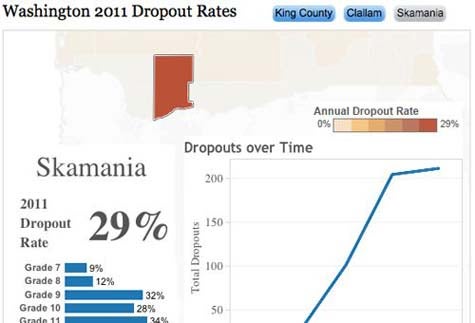There’s a bit of debate raging these days over where the center of analytics gravity is going to be. Some contend that without enough data scientists, analytics will advance too slowly to have as much impact on the business is the near term as it should. Others argue that no matter what happens, the expertise needed to actually use these tools will always require the specialized knowledge of the business analysts. And, finally, there’s a camp that says analytics is about to become democratized in a way that puts the power of analytics in the hands of every user.
Tableau Software, a provider of an analytics application that is invoked as a service, is firmly in the latter camp. The company this week released version 8.0 of its namesake analytics and visualization software, which among other things adds more predictive analytics capabilities, standard applications programming interfaces for importing and exporting data, enhanced graphics, and support for HTML5 in a browser that makes the application accessible to users of a wide variety of mobile computing devices.
According to Francois Ajenstat, director of product management for Tableau Software, the factors driving Tableau adoption all come down to a desire to make more business decisions based on actual facts rather than gut instinct. Business users need tools that allow them to sort data any way they like to derive additional insights. As such, Ajenstat thinks of Tableau as deploying the equivalent of an “Excel spreadsheet on steroids” that doesn’t require users to master hundreds of tables and macros to analyze data.
Of course, data scientists and analysts can still create data models and import them into Tableau. But the majority of the data that finds its way into the application is the information that end users discover and then load into the application. That approach essentially democratizes analytics in a way that makes data available wherever storage is accessible, says Ajenstat.
Of course, as an application, Tableau stores that data in a unique format. But the organization retains access to all the original information.
While advanced analytics obviously offers a lot of promise, achieving those benefits has been a challenge for many organizations. In addition to differing levels of priorities when it comes to analytics, organizations are having a hard time quantifying what the return on investment in analytics actually is.
Those issues notwithstanding, investment in analytics applications is continuing at a fairly rapid clip, which means the real challenge may not be the analytics software itself, but rather finding the right use case where it adds the most actual business value.



